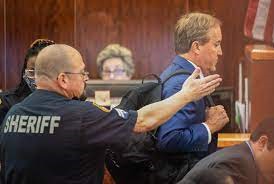
Here’s a quick recap of what happened over the last week:
Special Session Updat
e
On Tuesday, Gov. Abbott prematurely announced he had reached a deal with the House on the voucher issue. The Senate passed a voucher bill on the 3rd day of the session, but the House does not have enough votes to pass the legislation that would allow the use of public tax dollars for private school tuition. In the announcement, Abbott said he had opened the call of the session to include a teacher pay raise and a substantial boost in funding for public schools, which was assumed to be part of the agreement with the House. However, as soon as the “deal” was announced, it fell apart. Democrats were never part of the discussions and rural House Republicans stood their ground saying the voucher program would have a devastating impact on their small school districts.
So in the end, it was a mystery as to how the Governor believed a deal had been reached. The House convened on Wednesday very briefly, only to inform members they would recess for the rest of the week and weekend to see what if any final action the Senate would take on their border security and enforcement related bills the House had sent to the Senate last week. With Tuesday, Nov 7th being the final day of this special session, that action simply left no time for a voucher bill to be considered. Furthermore, on Thursday morning, the House Public Education Chairman announced that time had run out for a voucher bill this session. It is worth noting, that even though no agreement was reached this special session, no one in the House leadership seemed to close the door on conversations regarding voucher legislation should there be another special session.
The Senate this week approved their own version of a $1.5 billion funding proposal to extend the wall along the southern border. The House gave final approval to a very similar measure last week, but the Senate passed a Senate bill, meaning the entire process of a committee hearing and floor vote has to again occur in the House. The main difference between the two versions is the $40 million in funding in the Senate version allocated for border enforcement, including increased law enforcement in the Colony Ridge community in Liberty County – a residential development labeled by some Republicans as a hotbed for criminal activity tied to illegal immigration. But now, with the House not in session until at least Monday, the Senate may now be forced to pass the House bill if there is any hope for the border wall funding legislation. The legislation has further hurdles as well. Several conservative members of the Senate have questioned the amount of money being spent on border enforcement with very little to show for it. Senator Bob Hall, a very conservative Republican from east Texas said in a Houston Chronicle interview this week that he is “concerned we are spending a whole lot of money for the appearance of doing something rather than taking the problem on and actually trying to solve it.”
If the legislature is going to pass increased funding for construction of extending the border wall this session, then the Senate will have to pass the House bill, and then the House will have to concur in the Senate changes. Due to time constraints, that is the only option left for lawmakers.
The Senate Local Government Committee held a hearing this week on one of the issues for the special session. The Colony Ridge residential development, as mentioned above, has received attention from some Republican lawmakers after conservative media outlets labeled the area as a hotbed for crime and a sanctuary for migrants without legal documentation. No legislation has been filed to address the allegations, and the only mention of Colony Ridge is in the border wall funding bill in regard to enhanced enforcement opportunities for the Department of Public Safety. Most of the witnesses in the hearing refuted the claims of increased criminal activity and an abnormal number of undocumented immigrants. In the end, most members of the committee expressed frustration for adding the Colony Ridge subject matter to the call and did not see a need for any type of legislation.
The Senate Committee on Border Security also met this week to hear House Bill 4, the controversial legislation that passed the House last week that allows state law enforcement personnel to arrest migrants that have crossed into the state illegally for the offense of trespassing. The bill also allows law enforcement to transport the migrants to the nearest point of entry to begin deportation proceedings. The Senate added a provision that requires the migrants to have actually been convicted of a state crime prior to being transported for deportation. This provision was added to conform with federal statutes regarding requirements for deportation. This bill will now have to return to the House where members will have to consider the amendment for concurrence or sent to a conference committee. With so little time left in the session, anything other than the House signing off on the Senate amendment will ensure the bill will not pass this special session.
But yesterday, it appeared very unlikely the House would sign off on the Senate version of HB 4. In a series of tweets, House Speaker Dade Phelan and Lt. Governor Dan Patrick sniped back and forth as to why their respective chambers had passed a superior version of the bill and questioned why the other chamber would make changes. It was an embarrassing series of insults from each side that will in all likelihood doom this and most other border related legislation that was under consideration for this special session.
There was actually one thing the legislature accomplished this week. The Senate concurred in House amendments to Senate Bill 7 this week. SB 7 prohibits private employers of any size from requiring COVID vaccine mandates for their employees. That bill now heads to the Governor for his signature.
Abbott in Israel
Negotiations on the school voucher legislation took a backseat as the session winds down due to Abbott’s unexpected trip to Israel on Thursday. Abbott took the trip with Oklahoma Governor Kevin Stitt so they could meet with Israeli Prime Minister Benjamin Netanyahu and offer support for Israel from the two states. In statements announcing the trip, both Governors committed to continue combating potential acts of violence or antisemitism in their respective states. Abbott also said the state has appropriated $4 million to the Department of Public Safety to assist Jewish organizations with security enhancements.
Paxton Securities Fraud Trial Date Set

After a delay of nearly 8 years, AG Ken Paxton’s securities fraud case will finally be going to trial. In the oldest of Paxton’s legal troubles, Paxton is accused of failing to register as a securities adviser and defrauding investors in Servegy — a McKinney based tech services company – by not telling them he was being paid to recruit investors.
Issues regarding pay for the special prosecutors and the venue for the trial have been the main factors in why the case has been delayed for so many years. A state appeals court finally ruled earlier this year to allow the case to be moved from Collin County – Paxton’s home county — where prosecutors argued Paxton would receive favorable treatment. The judge in the case also ruled this week that the prosecutors are entitled to their $300 an hour rate that they were promised when they signed on to prosecute the case back in 2015. The original judge in Collin County stalled the payments to the prosecutors.
The prosecutors said they will be filing pretrial motions in February, laying out their case for prosecution. The charges against Paxton are felonies. If convicted, he faces losing his law license and even faces the possibility of being removed from office as part of the sentencing.
Border News

In the ongoing dispute and lawsuit regarding the placement by the state of razor wire along the border, the federal government has been told to stop removing the wire that has already been installed. Several months ago, the state began placing razor wire along the Rio Grande River in an effort to further deter illegal immigration. The federal agents with Customs and Border Patrol began to remove the wire, saying it was creating a hazardous and dangerous situation for some migrants and was delaying their response to migrants needing medical attention. In early October, the state filed a lawsuit asking the court to order the federal agents to stop removing the wire. In the filing, the state noted that the wires are placed on private properties with the permission of the landowners, and the federal agents have no right to destroy or remove the wire on private property. At least for now, the judge agrees. A judge for the US Western District has ordered the federal government must stop removing the wire until he can make a formal ruling on the case. A hearing on the state’s case will be heard on November 7th in Del Rio.
Texas’ US Senators – John Cornyn and Ted Cruz – took three of their Senate colleagues on a tour of the southern border last weekend. Included was Senator Mike Lee of Utah and Pete Ricketts of Nebraska. The group took the opportunity to not only criticize the policies of the Biden administration, but also said the tour was necessary to convey to their constituents in other parts of the country how the crisis at the border is affecting and impacting all states, mainly due to the illegal drugs that are pouring over the border and reaching communities in other states.
Low Voter Turnout Statewide

With early voting set to end today, turnout has been dismally low so far. Every voter who shows up in Texas will get to vote on the 14 proposed constitutional amendments that I have previously sent to everyone. Many local jurisdictions have races for mayor and city council, as well as bond proposals regarding school and infrastructure improvements. Turnout is typically much lower in off-cycle election years. In the November, 2021 constitutional amendment election, statewide turnout was 8.75%. Compare that to the 2020 Presidential election when 67% of all registered voters turned out. In the 2024 statewide races, 46% of all registered voters cast a ballot. For this year’s election, through 8 days of early voting, statewide turnout is only 3.52%. Harris County has reported the highest number of votes so far with slightly more than 115,000 having cast a vote either in person or by mail. There are 17.7 million registered voters in Texas. Overall, after 8 days of early voting, only 630,000 ballots have been cast.
Race for East Texas House Seat Heating Up

November 7th will also be the day for a special election for Texas House District 2, currently vacant due to the expulsion this summer of Bryan Slanton, the former member that was dramatically expelled from the House for carrying on a relationship with a Capitol intern. The race for the solidly Republican seat has drawn several candidates, but there are two that are the favorites to make the runoff. One of the leading candidates is Jill Dutton, the former school board member from Van that runs a construction business with her husband. She has garnered several high-profile endorsements – including from former Governor Rick Perry – and has the support of many business-related trade associations in Austin. Her main rival is Brent Money, an attorney and former member of the Greenville City Council.
Things have heated up in this race because Money has now received the endorsement and financial backing of Defend Texas Liberty PAC, the same PAC that used their resources to defend AG Ken Paxton during his impeachment trial and has come under fire for their association with white supremacist Nick Fuentes. The PAC has donated $35,000 to Money and is financing calls and campaign mailers that directly attack Jill Dutton. Money has refused to comment on the participation of Defend Texas Liberty PAC in the campaign.
Dutton, for her part, has received contributions from Texans for Lawsuit Reform and the Associated Republicans of Texas totaling over $200,000. So, this race is continuing the Republican intra-party fighting between the more established, moderate wing against the far-right faction of the party. The contest has three other candidates, but conventional wisdom is that these two will make it to the runoff, when things could really get nasty. Definitely one to watch on Election Day.
Political Notes
Several Republican incumbents – all of whom are allies of House Speaker Dade Phelan – have drawn primary opponents recently as the filing period for the 2024 elections begins on November 11th. Republican activist Hillary Hickland of Belton will challenge longtime incumbent Hugh Shine of Temple. Former Abilene City Councilman Charles Byrn is challenging incumbent Stan Lambert, also of Abiliene. Former Dallas County Clerk Cynthia Figueroa, now retired and living in Frisco, will challenge incumbent Jared Patterson of Frisco. And, attorney Barry Bernwick of Dallas, who has also been an unsuccessful candidate for Dallas City Council, will challenge Rep. Morgan Meyer of Highland Park.
In state House District 14 where incumbent Rep. Jon Raney is not seeking reelection, former Brazos County Sheriff Chris Kirk has dropped out of the race due to health concerns. That leaves College Station attorney Paul Dyson as the only candidate still running in the Republican primary for this GOP leaning seat based in the Bryan area. Dyson also has the endorsement of Rep. Raney.
Jared Woodfill, the former chair of the Harris County Republican Party announced yesterday that he will mount a primary challenge to 2nd term incumbent Rep. Lacey Hull. Woodfill’s former law partner was accused of sexual misconduct with minors back in the early 2000’s, and questions remain regarding Woodfill’s knowledge of the abusive conduct. In addition to seeking the House seat, Woodfill says he will also run for Speaker of the House if elected.
Democratic incumbent Rhetta Bowers of House District 113 in Rowlett has once again announced she will be seeking reelection to her House seat. Bowers has changed her mind three times now. Last month, Bowers announced she would be seeking the Democratic nomination for US House District 32 in Dallas to replace Colin Allred, who is seeking the Democratic nomination to challenge US Senator Ted Cruz next year. Bowers had also announced in June she was running for the Congressional seat before she changed her mind a few days later and announced she was seeking reelection to the state House. So, after the announcement in September to run for Congress, Bowers is now again seeking reelection to her state House seat. Former legislative staffer and social worker Tsion Amare has been up and running and says she is not abandoning her race due to Bowers’ most recent announcement. Bowers said she came to her most recent decision “after much prayer, conversation, and clarity with trusted confidants and colleagues” and went on to say “…it’s an honor to serve and we still have important work to do.” Bowers will be seeking her third term representing the Democratic leaning district in the suburban DFW area that takes in the areas of Rowlett and Garland.
Former Rep. Norma Chavez is trying to get her old job back. She announced this week she is running for what will be an open House seat in El Paso next year, left open by the retirement of current House member Lina Ortega. Chavez was defeated in 2012 and has run unsuccessfully for the House and for Congress since her defeat. There are two other prominent candidates seeking the Democratic nomination. El Paso city councilwoman Alexandra Annello and former El Paso County commissioner Vince Perez have been up and running in the race for several months and are the favorites to contend for the Democratic nomination.
In the race for mayor of Houston, state Senator John Whitmire continues to position himself as the front runner heading into election day. In addition to receiving the endorsement from the Houston Chronicle over the weekend, Whitmire announced this week that he still has $4.3 million cash on hand, which is a whopping 30 times more than anyone else in the race. Candidates were required to submit financial numbers for the month of October. Whitmire has spent $9 million on the race so far, including a $2.7 million TV buy in October. Congresswoman Sheila Jackson Lee – Whitmire’s closest competitor in terms of polling – reported spending $1.1 million last month, and has just $108,000 cash on hand. Former Metro chair Gilbert Garcia spent $1.9 million in October and has roughly $73,000 on hand while attorney Lee Kaplan spent roughly $1 million last month and has about $125,000 cash on hand.
Congresswoman Kay Granger of Fort Worth will not seek reelection next year. Granger – a very well-liked and effective member – is in her 14th term and currently serves as the powerful chair of the House Appropriations Committee. She was the first Republican woman to serve in the US House from Texas when she was elected in 1996, following her stint as the first female Mayor of Fort Worth. The first announced candidate to succeed Granger is John O’Shea, former Director of Pathology at Fort Worth Osteopathic Hospital. O’Shea has already been endorsed by AG Ken Paxton. Granger’s 2020 primary opponent, Chris Putnam, has also shown interest in running. Another possible candidate is current Republican state Rep. Craig Goldman of Fort Worth. Goldman was first elected in 2012 and currently serves as the chairman of the Energy Resources Committee. The district is solidly Republican and includes most of western Tarrant County and all of Parker County.
What’s Next??
There has been no progress on any type of agreement on the school voucher issue, so there is no further activity on school vouchers expected this session.
The Senate met Thursday and conducted no business. The Senate will convene again Sunday afternoon where they have House Bill 4 on their calendar for consideration.
The House is standing at ease awaiting action from the Senate and will convene either Monday or Tuesday.
The final day of this special session is Tuesday, November 7th.
